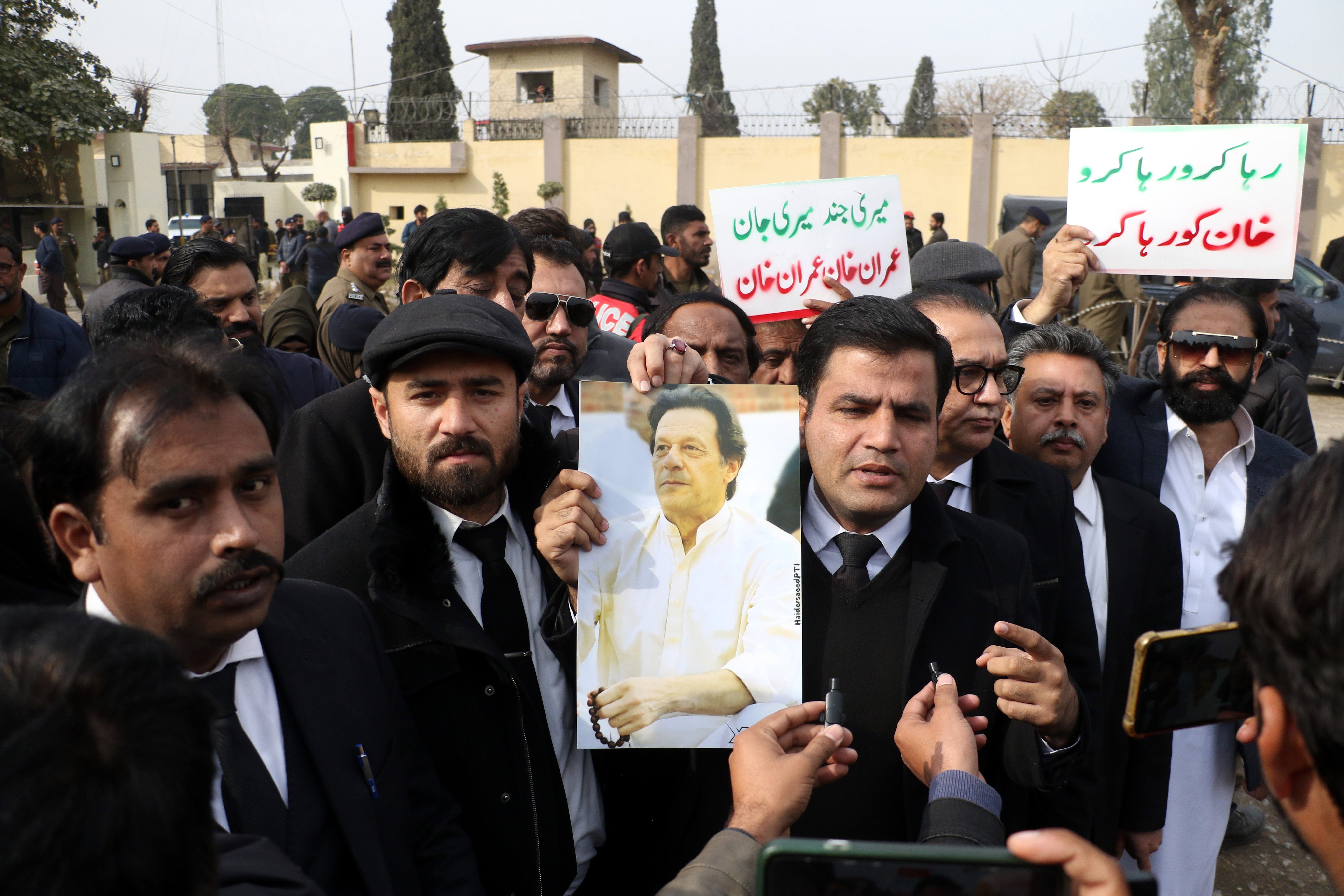Imran Khan was a marked man from the moment he returned to Pakistan
In a political system firmly locked against intruders, the former Pakistani cricket captain was, from the start of his career, a deeply unwelcome presence, writes Peter Popham


Pakistan has long had a peculiarly cruel fashion of dealing with its disrupters.
The 14-year jail sentence handed down to Imran Khan – his wife Bushra Bibi was given seven years – for corruption is intended to be the last nail in the political coffin of the nation’s most charismatic democratic interloper.
Can we be forgiven for not taking the allegations against Mr Khan seriously? The charge sheet says he accepted a gift of land from a real estate developer in exchange for laundered money when Khan was in power.
If so it was a grievous fault – and grievously has the former Pakistani cricket captain answered it. But the Pakistani public will heave a cynical shrug: this is what our political masters do, as natural as breathing, they will say, and it’s what in the end they get punished for. It’s a vicious game, and it’s been going on since 1979 when General Muhammad Zia ul-Haq had Zulfikar Ali Bhutto, the prime minister he had overthrown in a coup, executed.
In a political system firmly locked against intruders, Imran Khan was from the start of his career a deeply unwelcome presence. His looks and his cricket credentials gave him fame and popularity right across the population, and in a system based on vote banks tightly related to territory, this was something quite new.
Democracy has never flourished for long in Pakistan, where the sort of land reforms that revolutionised independent India early in its history have never happened, and where feudal lords continue to hold vast unaccountable power. Khan’s was the boldest and most plausible bid to shatter that corrupt and cosy system.
His education in England, first at public school then at Keble College, Oxford, and his philandering with an unspecified number of society blondes, put him way beyond the straitlaced norms of Pakistani life, and when he first tried to enter politics he was greeted with ridicule. Someone as handsome, famous and handy with a cricket bat could not be intelligent. So Imran was a joke – that was the first line of defence against him.
As he did not give up and slink away but instead persisted, perhaps he could be bought up, and successive Pakistani leaders tried to de-fang him by bringing him into their administrations. Khan was having none of it. Shattering the frame of Pakistani politics remained his goal.
What gave him the perseverance that is perhaps his most notable characteristic, enabling him to bash on through more than 20 years of reversals and snubs till finally winning the election of 2018 and becoming prime minister? On the face of it, he is an improbable revolutionary.
Born and raised in Lahore in the Pakistani heartland, brought up by affluent parents from the small professional class, on the face of it there is nothing of the outsider about him. What made the difference is that both his parents were Pashtuns.
The River Indus, from which the word “India” derives, has been the great divide in the subcontinent since Alexander the Great, with the very different tribal culture of Afghanistan on the western side of it. I remember driving over the bridge into what was then still known as the North West Frontier Province back in 2001, and my Punjabi fixer being visibly unhappy about the crossing: they are different people over here, he said.
The Pashtuns, who gave birth to the Taliban, with their fierce martial culture and refusal to bow to successive invaders, are vastly different from the docile farmers of Punjab, and the Durand Line separating Afghanistan from the British Raj remains Pakistan’s wildest and most porous border.
With the glamour of an international sportsman, a wife, Jemima Goldsmith, of Jewish descent, the reputation and looks of a playboy and the adulation he enjoyed with Pashtuns both at home and abroad – no wonder the staid and deeply corrupt Pakistani establishment saw him as a serious threat.
Yet Khan had staying power; and when he finally arrived in government, he showed every sign of being serious about reforming Pakistan.
Khan has long been drawn to the Sufi strain of Islam, with its mystical traditions, its saints and its shrines, and its history of tolerance; his marriage to Bushra Bibi, a Sufi faith healer, cemented the ties and lent credibility to his programme of reducing the pomp and cost of politics, raising the living standards of the poor and taking the state’s commitment to equality seriously.
Did Khan’s visit to Moscow and his neutrality over Russia’s invasion of Ukraine lead to his unseating in a no-confidence vote in 2022? Khan himself believes that the US indicated they wanted rid of him, and everything that followed, followed.
Join our commenting forum
Join thought-provoking conversations, follow other Independent readers and see their replies
Comments
Bookmark popover
Removed from bookmarks